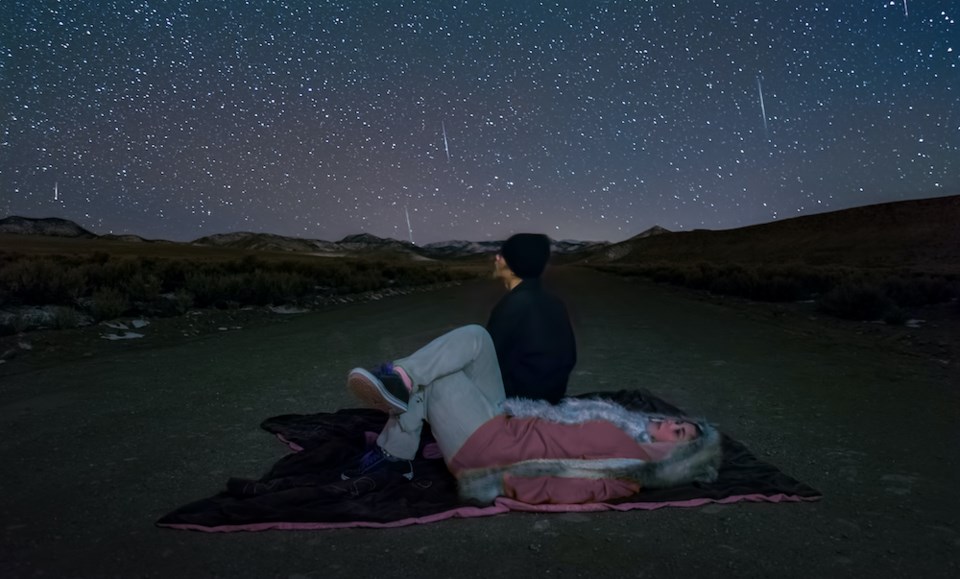Ready to wish upon a shooting star?
What if you could wish on dozens of them in one celestial tour de force?
According to experts, this month will offer prime viewing conditions in Metro Vancouver for one of the best meteor showers of the year.
The Perseid meteor shower never fails to offer numerous, bright shooting stars for a breathtaking summer display. Best of all, the Perseid shower is one of the easiest to view from the Northern Hemisphere.
Each year, the Perseids are viewable as Earth passes through "the path of Comet Swift-Tuttle from July 17 to Aug. 24," explains Space.com.
Marley Leacock, an astronomer at the H.R. MacMillan Space Centre, tells Vancouver Is Awesome that the Perseid meteors will appear to come from the north-northeast part of the sky.
"If you find the constellation Cassiopeia, just head a bit to the right, and you've found Perseus!" she exclaims.
The meteors can appear to come out of the constellation Perseus, which is why they call them the Perseids, adds Leacock.
Meteors can streak across the sky in all directions, however, so the radiant is not vitally important for viewing. "Looking up and in a general northern direction is fine," she says.
Perseid meteor shower to peak in Vancouver
The shower will peak on Aug.12 and Aug. 13. When the sky is darkest — in the darkest hours after midnight — up to "50 to 80 meteors per hour can streak across the sky," according to the Canadian Space Agency (CSA). And in the nights leading up to the peak, an increasing number of shooting stars will become visible, too.
Leacock notes that that the shower's radiant is the highest in the sky during pre-dawn hours and there is less atmosphere to impact viewing. "Additionally, this year the Moon is just coming out of New Moon and heading towards First Quarter during the peak nights of the shower, so there is less light in the sky."
Local stargazers should also try to get out of the city where light pollution may diminish the display's brightness. From there, Leacock says you should lie on your back and look to the north.
But don't make the astral outing a gaze-and-go kind of affair.
"Give yourself about an hour of viewing time," she says. "Meteors come in bursts, and then it will be pretty quiet until the next one."
Learn more about the Perseid meteor shower.



.jpg;w=120;h=80;mode=crop)